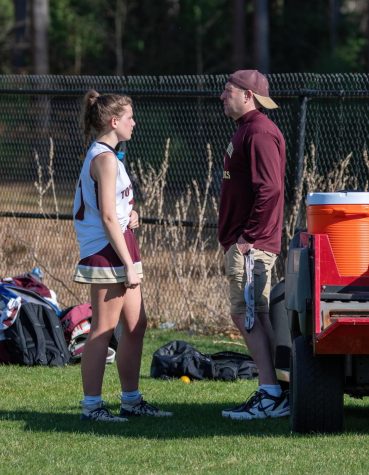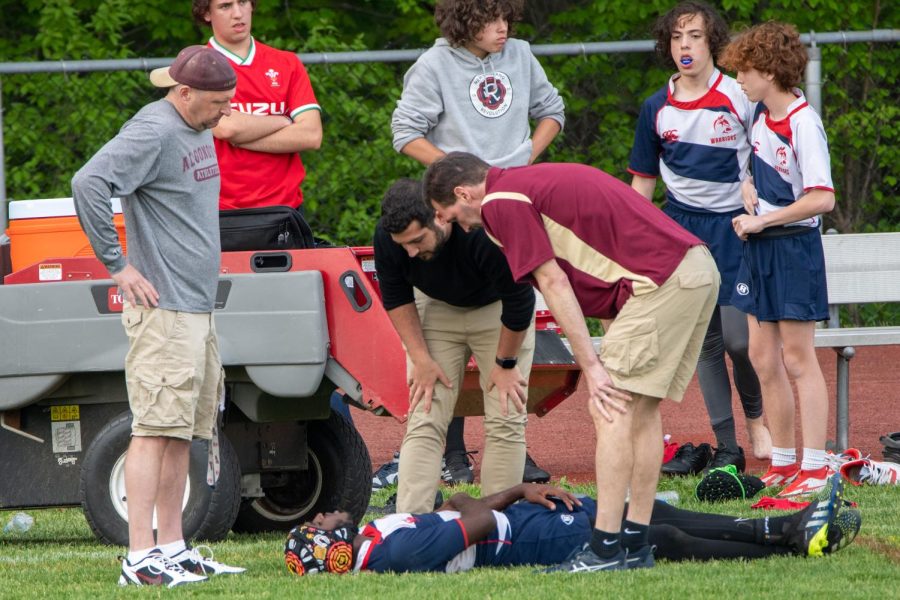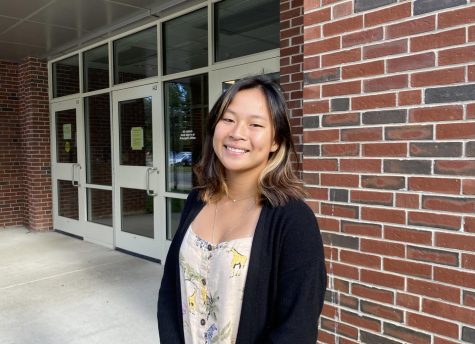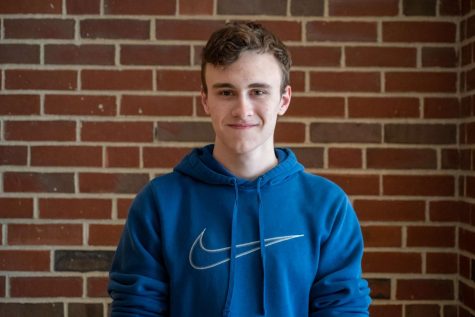Student athletes find silver lining in injuries
A rugby player from Brookline High School gets checked by Athletic trainers.
May 24, 2022
In the competitive atmosphere of high school sports, season-ending injuries are not uncommon for even the best players. Despite those injuries, though, some athletes still find a way to stay connected with their teams.
Although injuries are more common in certain sports, athletes in a variety of sports have been affected by injuries that take them out of their sport completely.
Athletic trainer Jonathan Drisko has been working at Algonquin for many years and says he does everything he can to support athletes.
“The most common injuries are ankle sprains, ACL tears, concussions and overuse injuries,” Drisko said via email. “Just being on site during practices and games is the best way to support the teams. It is important to remember that I am one person, serving 500-600 athletes. I do the best I can. I think that’s all anyone can ask.”
Some injuries are hard to avoid, but Drisko says taking the right steps to take care of one’s body can help athletes prevent injuries and better ensure a healthy season.
“Many of the athletes need to prepare for their season by being in shape prior to tryouts or the start of their preseason,” Drisko said via email. “Many minor injuries can be prevented that way.”
Unfortunately for some athletes, injuries are unavoidable and have put a stop to their high school season. Despite that, however, many still found a way to stay engaged with their team and make the most of the circumstances.
“[The athletes] usually want to stay involved with the teams, so they become a manager if they can no longer contribute on the field of play,” Drisko said via email.
After tearing her ACL during her varsity volleyball season, senior Caitlyn Blanchard found herself still showing up to every game to support her team. While there were days where she said it was hard to show up, she still did, and she found that volleyball became more than just a sport.
“The girls still made it worth my time to go,” Blanchard said. “With the injury, I couldn’t really be there as much as I wanted to, but I was still there with the team [to support them].”
Despite her season-ending injury, Blanchard found another way to contribute to her team and still be a part of her sport.

“I took the time to really watch the girls grow as players rather than just focusing on myself and making myself better,” Blanchard said. “It became more than just showing up for myself.”
Like Blanchard, senior Nicholas McEvoy was faced with a season-ending injury. After fracturing his hip during football season, he found that his injury not only affected his fall season but will affect upcoming sports as well.
“The football team was able to find a good replacement line for me,” McEvoy said. “My injury affected rugby more, since I’m the captain and I wasn’t able to hold captain’s practices.”
However, despite the inability to play, McEvoy found that his injury allowed him to work on himself and gave him time to pursue other interests.
“It helped me realize that you need to work on yourself at times, but it sucks that I wasn’t able to play in my football season,” McEvoy said. “It was really tough not being able to do anything, but I personally think that it was also a positive thing because it gave me time to work on Eagle Scouts.”
Despite the hardships and struggles that the athletes faced when they were injured, both Blanchard and McEvoy were able to find positive sides of their injury.
“Especially since it was my senior year and I lost my whole season, it was really hard,” Blanchard said. “But there’s things to focus on other than playing because I feel like I got to know my team a lot better as players.”
In light of his injury, McEvoy found that the best advice is to take care of your body.
“Listen to your body,” McEvoy said. “If you’re in pain, don’t keep playing.”
Similarly, Drisko wants athletes to do what’s best for their health and body.
“Important reminder to athletes: your body doesn’t forget,” Drisko said via email. “Abuse it when you’re younger and you’ll pay for it when you become older.”











